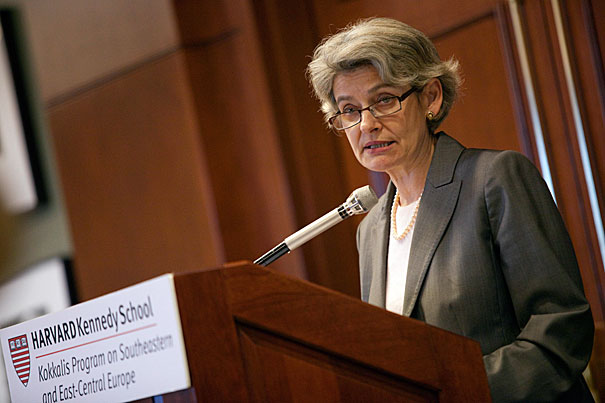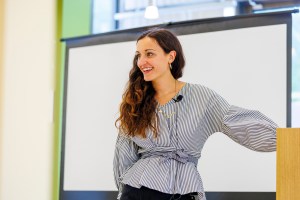Nation & World
-

A tale of three cities — and their turn to right in heartland
Government professor’s new book focuses on roles of race, class, and religion in evolution of former New Deal Democrats
-

Why do election polls seem to have such a mixed track record?
Democratic industry veteran looks at past races, details adjustments made amid shifting political dynamics in nation
-

You’d never fall for an online scam, right?
Wrong, says cybersecurity expert. Con artists use time-tested tricks that can work on anyone regardless of age, IQ — what’s changed is scale.
-
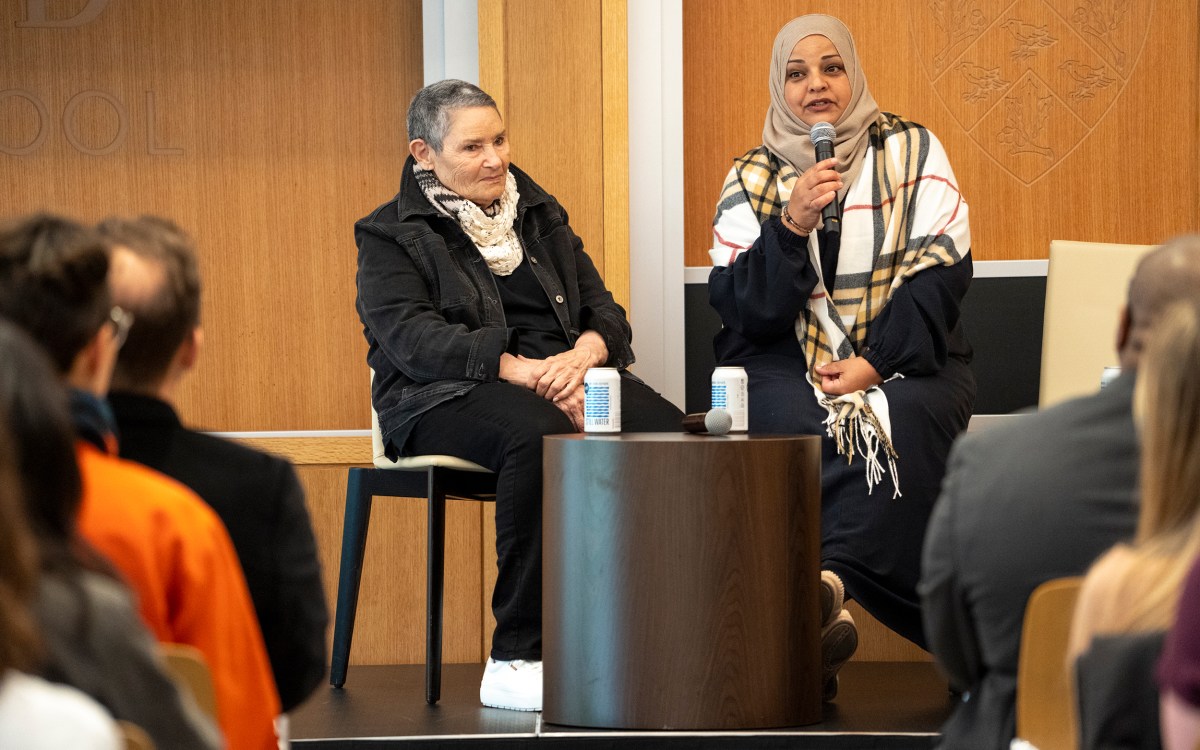
Two bereaved mothers who know price of war work for peace
Layla Alsheikh, Robi Damelin argue path to Mideast reconciliation begins with acknowledging common humanity
-

Taking the phones out of school
In podcast episode, experts discuss growing movement to restrict devices in class
-
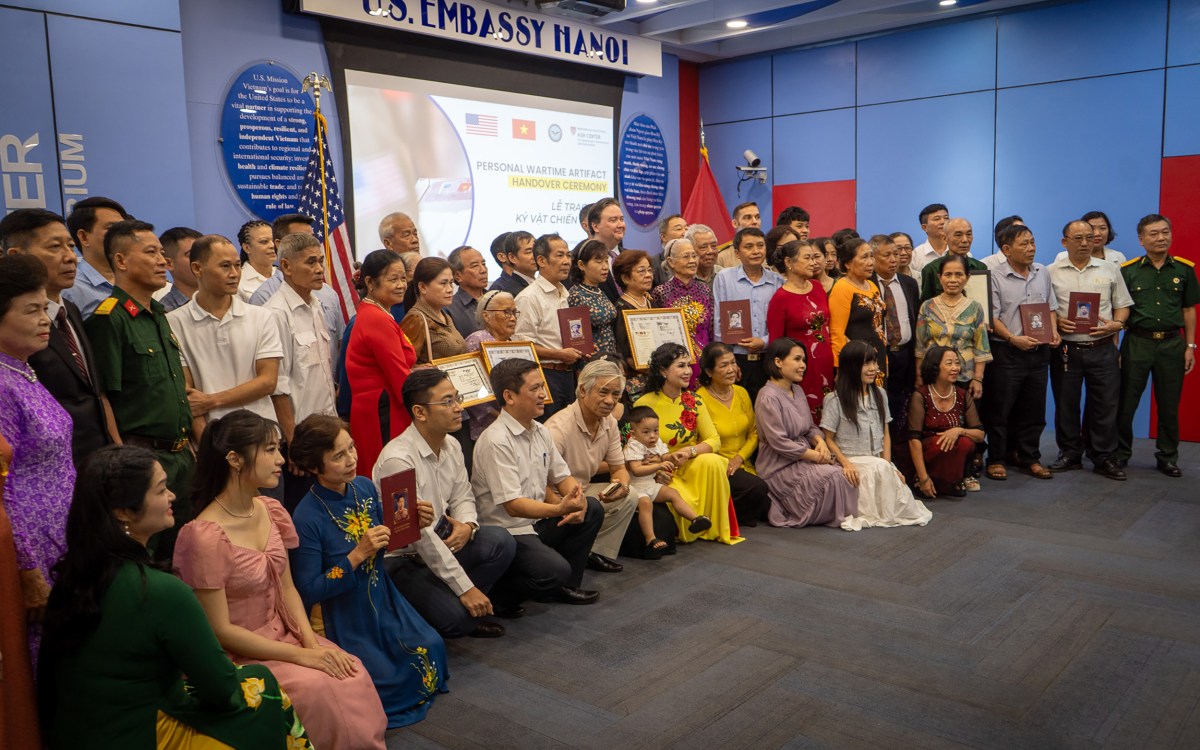
‘The first new information we’ve heard in 50 years’
Unseen Legacies researchers are answering decades-old questions about the fates of Vietnamese soldiers
-
JFK’s legacy at 50
To honor the 50th anniversary of John F. Kennedy’s inauguration, the Harvard Kennedy School and the Institute of Politics are planning a year of events designed to update the former president’s call to public service for the modern age.
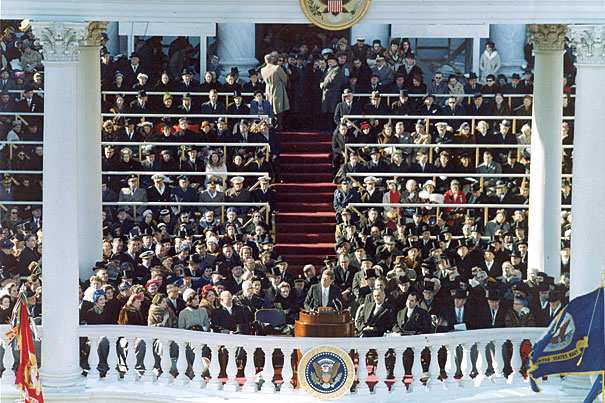
-
Haiti: New Hospital
Harvard faculty work through nonprofit to bring health to world’s poor.
-
Progress in Haiti ‘painfully slow’
A year after a devastating earthquake in Haiti, Harvard faculty members reflect on work done there and the difficult job that remains.
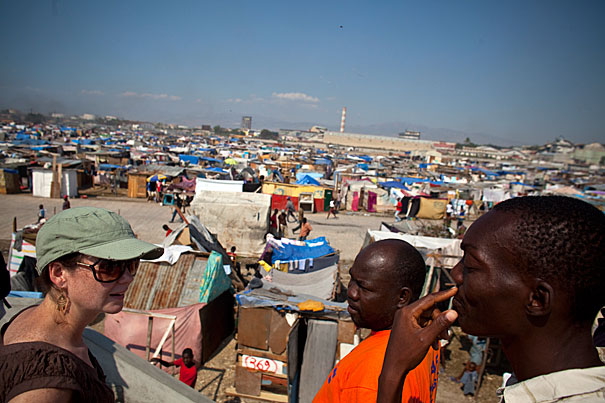
-
Congo: Rape as Strategy
Researchers from the Harvard Humanitarian Initiative have been working in the Democratic Republic of the Congo for several years examining the roots of the violence against women that has plagued this war-torn region.
-
Haiti: Home Visit
Living in the poorest country in the Western Hemisphere, most of Haiti’s nine million people are subsistence farmers. Poverty and malnutrition are exacerbated by poor health care and a low vaccination rate.
-
Haiti: Mother to Child
Living in the poorest country in the Western Hemisphere, most of Haiti’s nine million people are subsistence farmers. Poverty and malnutrition are exacerbated by poor health care and a low vaccination rate.
-
Working with WikiLeaks
In the age of WikiLeaks and other web whistleblowers, traditional journalists still have an important role to play in publishing government secrets in an effective and responsible way, said Bill Keller, executive editor of The New York Times. He was joined at the Nieman Foundation on Dec. 16 by a group of concerned journalists and editors discussing secrecy and journalism.
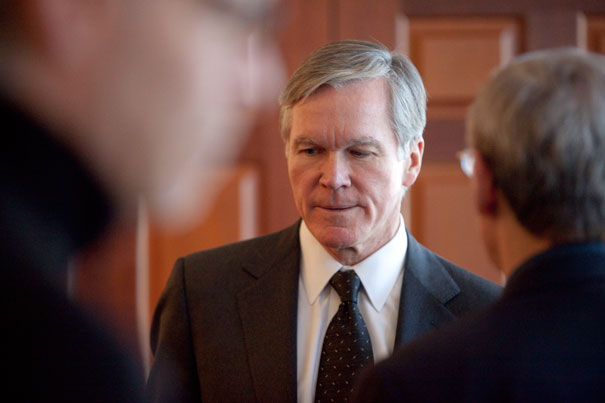
-
Quashing a voice, attacking a Nobel
A Nobel Peace Prize for jailed Chinese activist Liu Xiaobo brought a flood of criticism from China’s ruling Communist Party. The reaction shows China’s dedication to maintaining its “moral authority” at home, said Bao Pu, publisher of a new book of Liu’s essays.
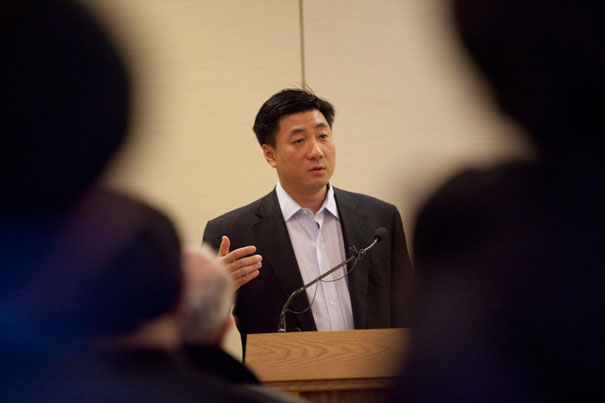
-
Six years a hostage
Former Colombian presidential candidate Ingrid Betancourt offered a gripping discussion of her six years held hostage by the FARC rebel group during a discussion at Harvard’s Center for Government and International Studies.
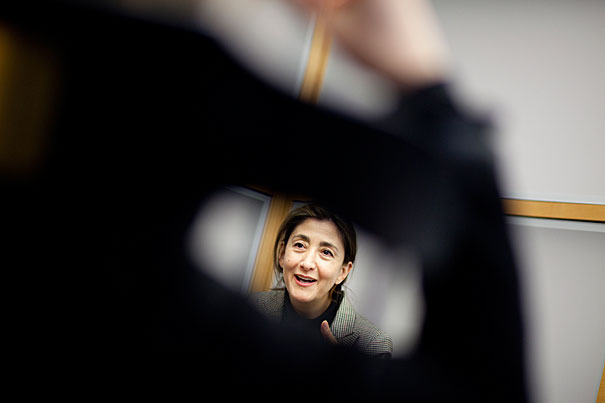
-
The politics of ballparks
From Camden Yards to Fenway Park, Red Sox President and CEO Larry Lucchino has helped to push the idea of the American ballpark as a civic focal point since the 1980s. On Tuesday (Dec. 7), he shared his thoughts on “Ballparks, Politics, and Public Policy” at the Harvard Kennedy School.
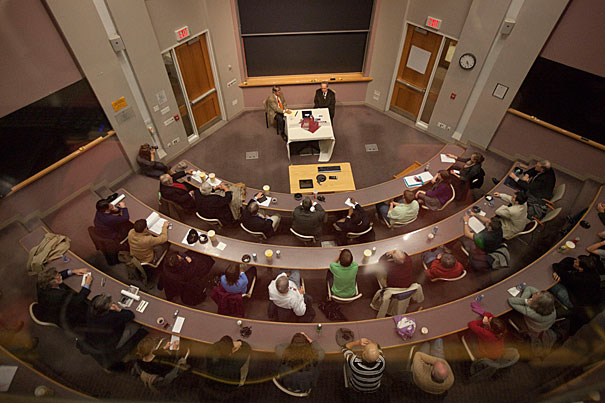
-
Inside a kidnapping
New York Times reporter and author David Rohde discussed his seven months in captivity at the hands of the Taliban, which is the subject of his book, “A Rope and a Prayer: A Kidnapping from Two Sides,” co-authored by his wife, Kristen Mulvihill.
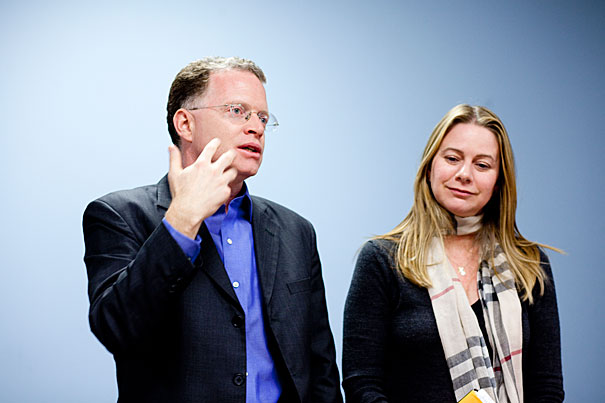
-
The ripples of Brown v. Board
Panelists say Brown v. Board of Education is still a banner for racial equality, but its inspiration may not be matched by its actual legal impact.
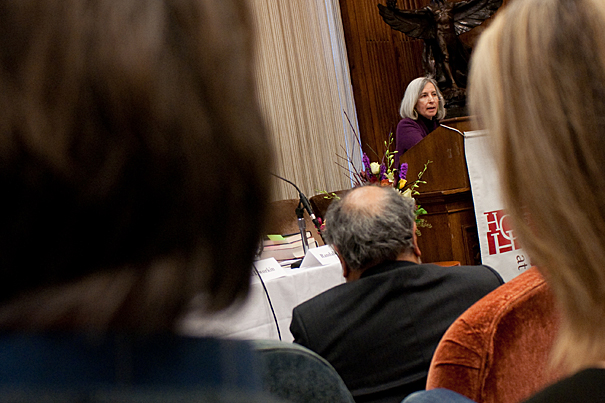
-
Heading for Congress
Twenty-four incoming members of Congress visited the Harvard Kennedy School this week for a four-day conference to help prepare them for their new jobs.
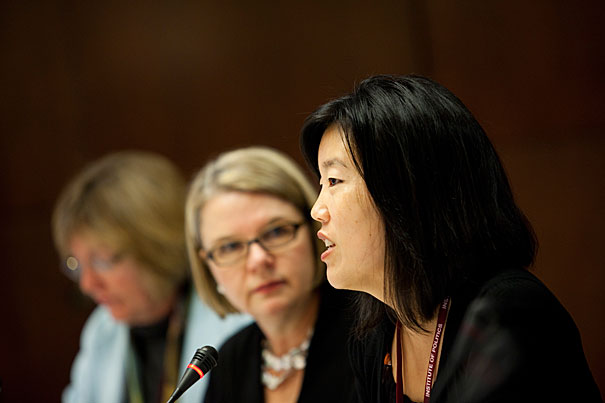
-
The hard way
Four people who risked their careers and even their lives to stand on principle shared their stories in an event sponsored by the Carr Center for Human Rights.
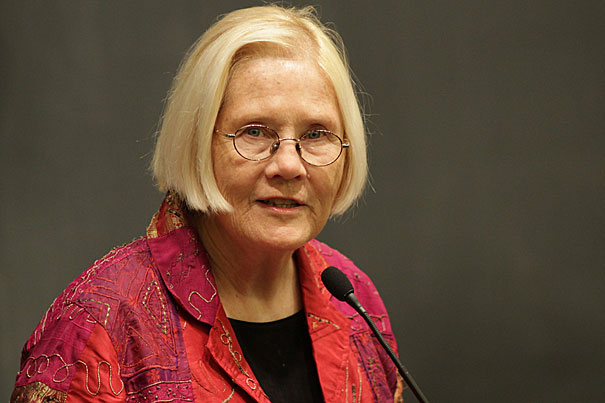
-
Nuclear weapons, primal fears
With 23,000 nuclear weapons in the world, analysts gathered at Harvard with a message: Just say none — but prepare for the worst.
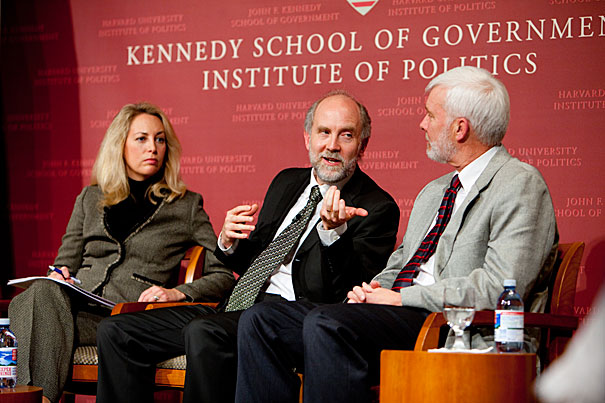
-
Echoes of Tiananmen Square
In her freshman seminar, lecturer Rowena He sheds light on the Chinese government’s 1989 crackdown on dissent by melding the personal with the academic.
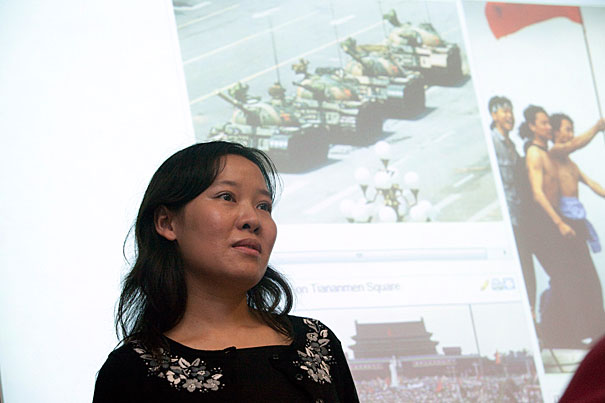
-
Italy and Africa, entwined
Students in Giuliana Minghelli’s new course on cultural migrations between Italy and Africa get an up-close view of the colonial era, witnessing a performance by one of the assigned authors and developing their own creative responses.
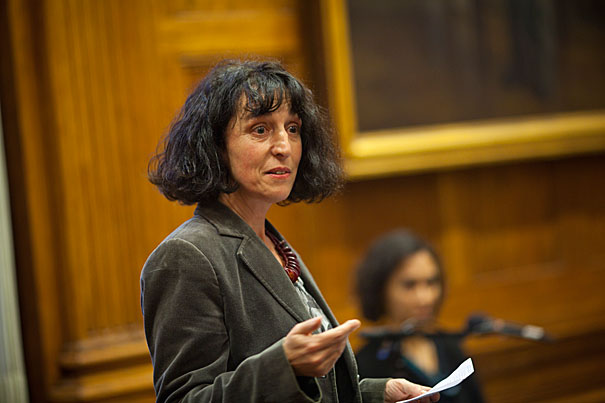
-
Giant steps
Scholars and editors debate and celebrate the legacy of their late mentor, Samuel P. Huntington.
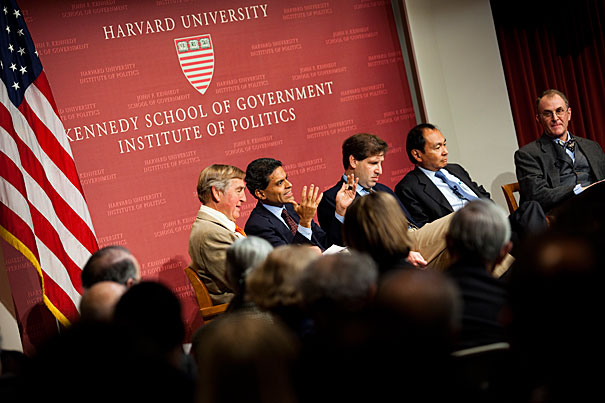
-
Innovative education
In a speech, Arizona State president presents new ideas that could fuel higher educational innovation over the next 40 years.
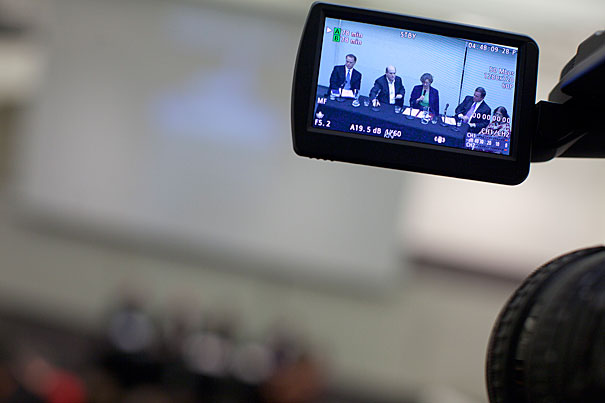
-
The outlook for Africa
Former Secretary of State Condoleezza Rice argued that the United States’ continued involvement in African affairs is good for international stability and for the American idea in “The National Interest, Africa, and the African Diaspora: Does U.S. Foreign Policy Connect the Dots?” — the first of three W.E.B. Du Bois lectures on the black experience in American foreign policy.
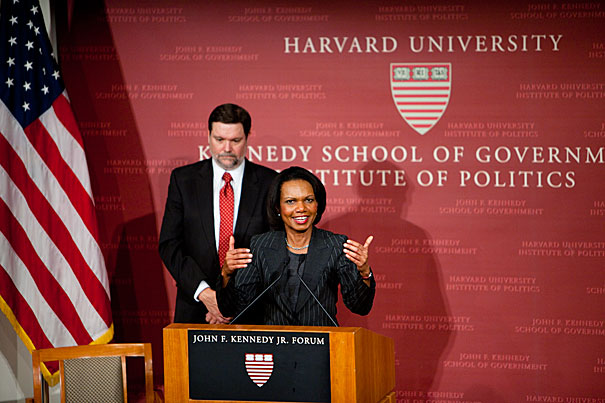
-
A friend in the Middle East
If American leaders want help disentangling — and possibly even solving — complex problems in the Middle East, they should look to Saudi Arabia for leadership, said Prince Turki Al Faisal, former ambassador to the United States, in a talk at the Harvard Kennedy School’s Institute of Politics on Friday (Nov. 19).
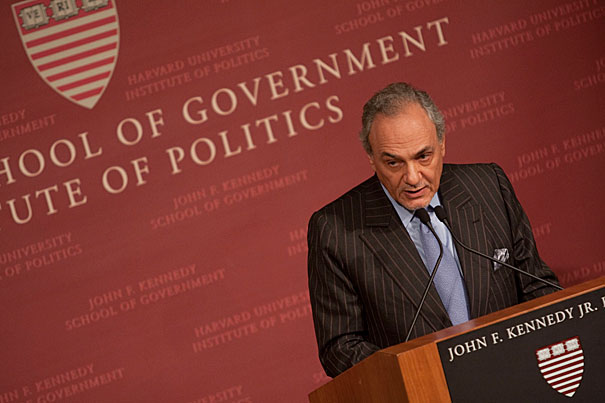
-
Like-minded
Former Washington, D.C., chancellor of schools Michelle Rhee, former Florida governor and current visiting fellow Jeb Bush, and the Center for American Progress’ John Podesta tackled the politics of education reform at an Institute of Politics forum moderated by former U.S. Secretary of Education Margaret Spellings.
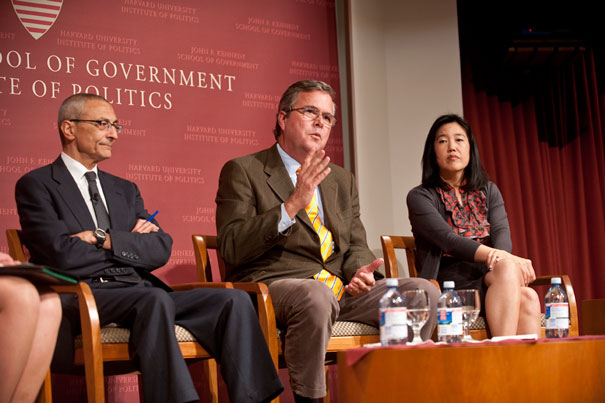
-
Attention!
War is an unpredictable, nonlinear interplay of policy and strategy, Adm. Mike Mullen said in a Harvard talk, and “sense and adjust” is the way to proceed.
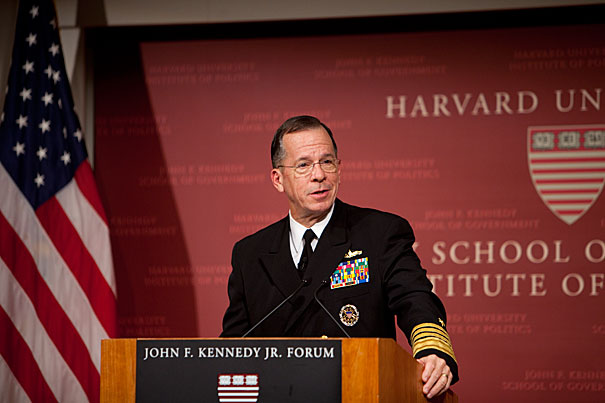
-
Divided they stand
What to expect in 2011 and beyond? After this month’s midterm elections, Harvard’s resident analysts look ahead to Congress’ upcoming agenda, from tax reform to foreign policy to the 2012 political calculus.
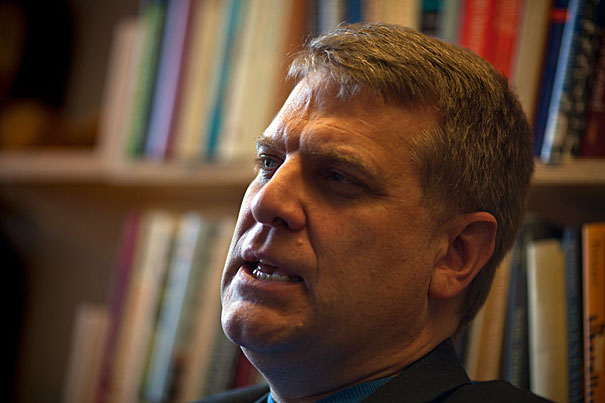
-
Moot points
Harvard Law School students and United States Supreme Court Chief Justice John G. Roberts participated in the final round of the annual HLS Ames Moot Court Competition on Nov. 16.
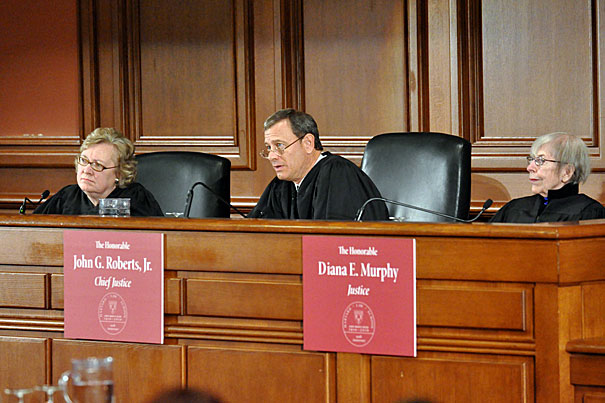
-
Protecting justice
Chief Justice Margaret Marshall of the Massachusetts Supreme Judicial Court warned of troubled courts and politicized judiciaries while delivering the Paul Tillich Lecture at the Memorial Church at Harvard.
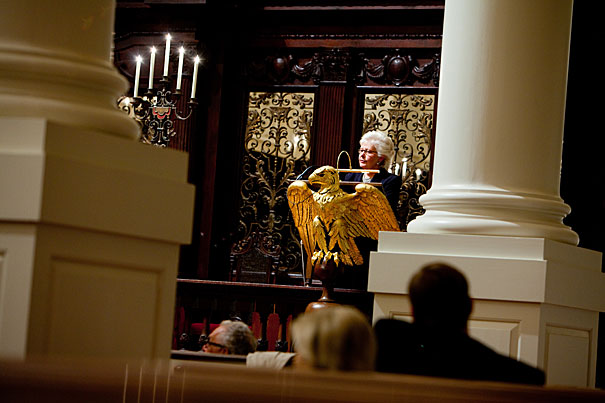
-
Giving children ‘Room to Read’
Building on the library model developed by industrialist Andrew Carnegie in the late 1800s, philanthropist John Wood and his nonprofit, Room to Read, are aiding education in the developing world.
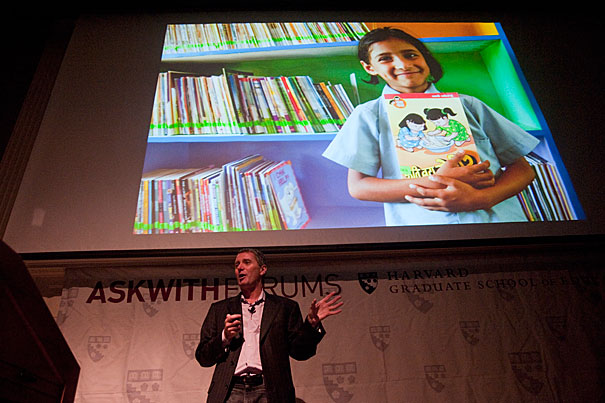
-
Setting the stage for Roe v. Wade
Linda Greenhouse, a former New York Times reporter and now the Joseph Goldstein Lecturer in Law at Yale University, and Reva Siegel, the Nicholas deB. Katzenbach Professor of Law at Yale, provided new perspectives on interpreting Roe v. Wade during the 2010-11 Maurine and Robert Rothschild Lecture at the Radcliffe Institute for Advanced Study at Harvard University.
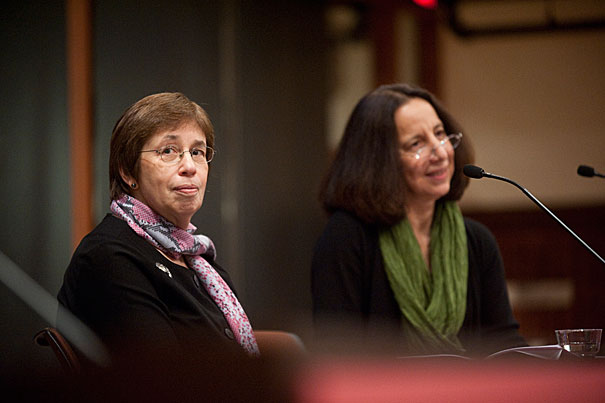
-
Alumni go to Washington
Harvard alumni elected to Washington offices, governorships.
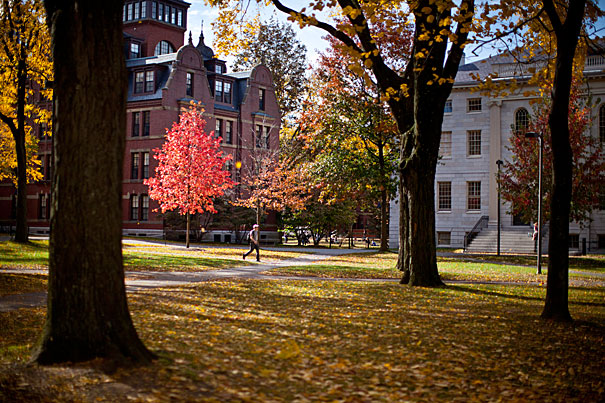
-
The rights of women
UNESCO director-general cites progress on international rights, but says gender equality lags in regions like sub-Saharan Africa, where as many as 12 million girls never attend school.
